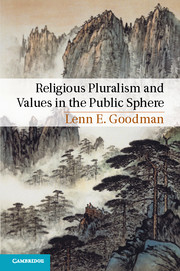4 - The Road to Kazanistan
Published online by Cambridge University Press: 05 June 2014
Summary
When Rawls is credited with restoring normative discourse in politics, the praise might mean that his example freed theorists long afraid to buck the positivist tide that ran so strong in the first two-thirds of the twentieth century. Or it might mean that his work broke the hold of the machiavellian equation of realism with realpolitik so often attached to the idea of value-free social science in the study and teaching of politics, history, and law. There is some truth in those claims. Rawls did help make normative claims respectable where they had been shunned. He must share the credit, of course, with Watergate, which provoked widespread calls for a new infusion of moral concerns into public life and for the teaching of morality to future leaders and professionals. Such spirited calls seem innocent of the ancient recognition that virtue is learned more from practice and example than from precept and tuition. The fond hopes for moral education externalized the infamy, ducking the admission that Watergate, like many another scandal, was not just a violation of the ethos but also an ugly caricature of it – spit and image of the practices long modeled in the Lone Ranger's forays into villains’ safes and offices: Conscientious subterfuge was fine, so long as it stayed sub rosa. The jig was up when Nixon was caught sending men into the Watergate sniffing for evidence of Cuban ties to the Democratic Party. The same moralists who voiced shock at the burglary lionized Daniel Ellsberg for leaking the Pentagon Papers. Plato's lesson was hard to learn and easy to forget: It was not Socrates but Athens who formed the character of Alcibiades.
Morals, for much of the twentieth century, were readily and willfully confused with moralism. The Vienna Circle – their shadow grown tall by mid-century, silhouetted in the glow of scientistic optimism – shunned value talk. They had seen the rhetoric of idealism carried off by extremist ideologues to misty metaphysical heights and then restored, deflowered and led captive by dubious and dangerous causes. Positivism looked clearer and cleaner. Pragmatism felt more down to earth than overt metaphysics. And utilitarianism, at least, seemed naturalistic and forward looking. Or Marxism – if one could trust its promises and ignore the noises off from the dungeons and the Gulag – bruited itself as scientific and progressive, the wave of the future.
- Type
- Chapter
- Information
- Religious Pluralism and Values in the Public Sphere , pp. 144 - 192Publisher: Cambridge University PressPrint publication year: 2014



